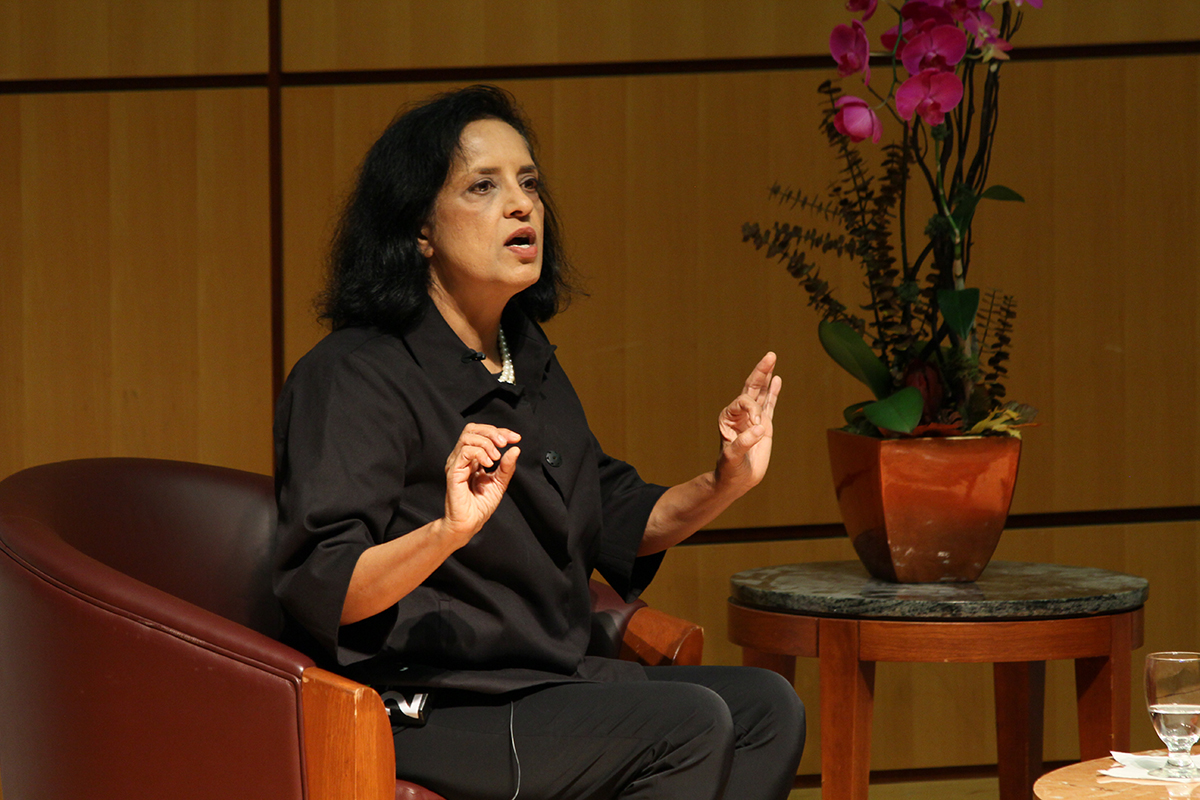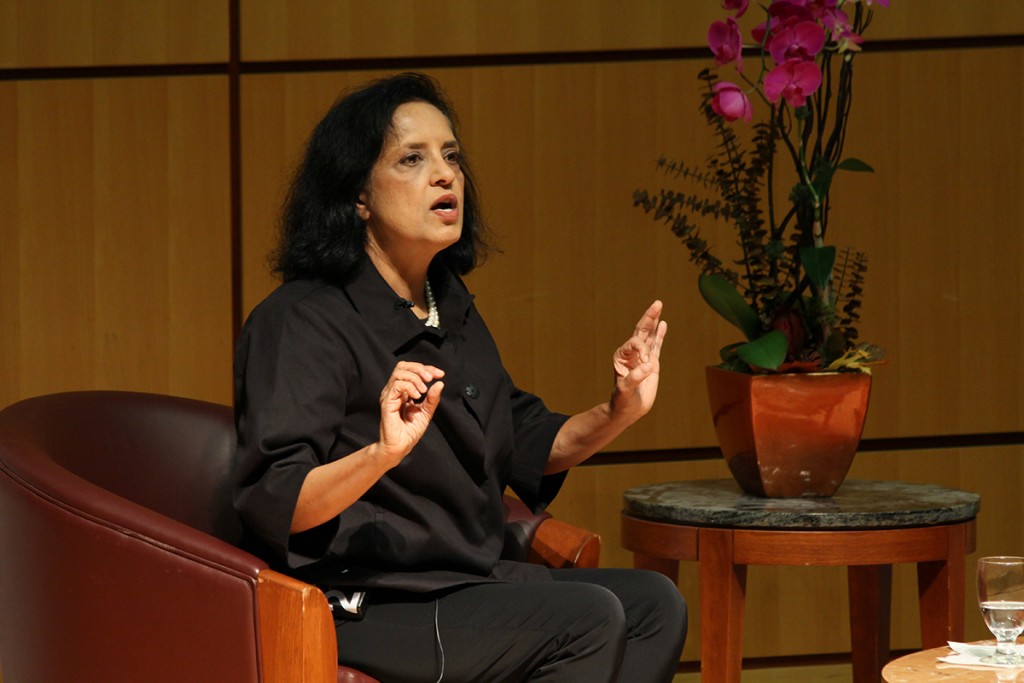

Roomy Khan visited the Storer Auditorium at the University of Miami School of Business to discuss the dangers of insider trading on Tuesday night.
Khan was born and educated in India, where she received degrees in physics and electrical engineering along with an MBA. She spoke about insider trading as someone who has been charged with the crime in the past.
Khan began the talk by going into the basics of hedge fund management. She discussed the various management positions in the average hedge fund and then shifted towards insider trading. Khan described insider trading as information shared by a company towards a select group of investors rather than all of them. It is also information shared after the “quiet period” (three weeks before the end of the quarter) and information shared after the quarter end.
“You basically get a chance to buy ahead of others [investors],” Khan said. “Insider trading is a very insidious crime because it doesn’t feel like a crime. You’re so focused on the end goal that you’re not thinking you’re breaking the law.”
Khan first broke the law in 1998 when she got in trouble with then-head of the Galleon Group, Raj Rajaratnam. Khan hit it off with Rajaratnam because she shared the same Punjabi heritage as Rajaratnam’s wife. She found herself so eager to earn a spot at his company that she faxed him Intel stock information.
“I was charged with wire fraud, but to be honest, I didn’t know I was breaking the law,” Khan said.
In 2007, Khan got caught trading insider information. She agreed to collaborate with the FBI agents who caught her in order to catch her boss Rajaratnam. “[Working with the FBI was the] most difficult experience I have encountered … it still has strains in my life. I don’t think something like this will ever end,” Khan said. “I tell people to Google me before socializing.”
Khan eventually was jailed despite her collaboration with FBI.
Professor Steve Halbert, who teaches securities law in the business school, said that insider traders believe that they are invincible. “[Insider traders] believe they can enrich themselves without ramification. Insider trading increases, slightly, the gains, while reducing the losses,” he said.
Since being released in June 2014, Khan has been speaking about her experience. She discussed how easy it was to succumb to the temptation.
“In this case, there is no real victim. You’re not stealing from anybody,” she said. However, turning down any offer to trade from the inside is key. “Losing your job (based on bad performance) is not as bad as not being able to work ever again. I have so much education and nothing I can do with it.”
She addressed any future hedge fund workers with a warning.
“I’m a case of what not to do,” Khan said upon released from prison. “I don’t think I can ever recover.”
Khan said that her next step in life would be to teach, if only she could move on from this experience.






